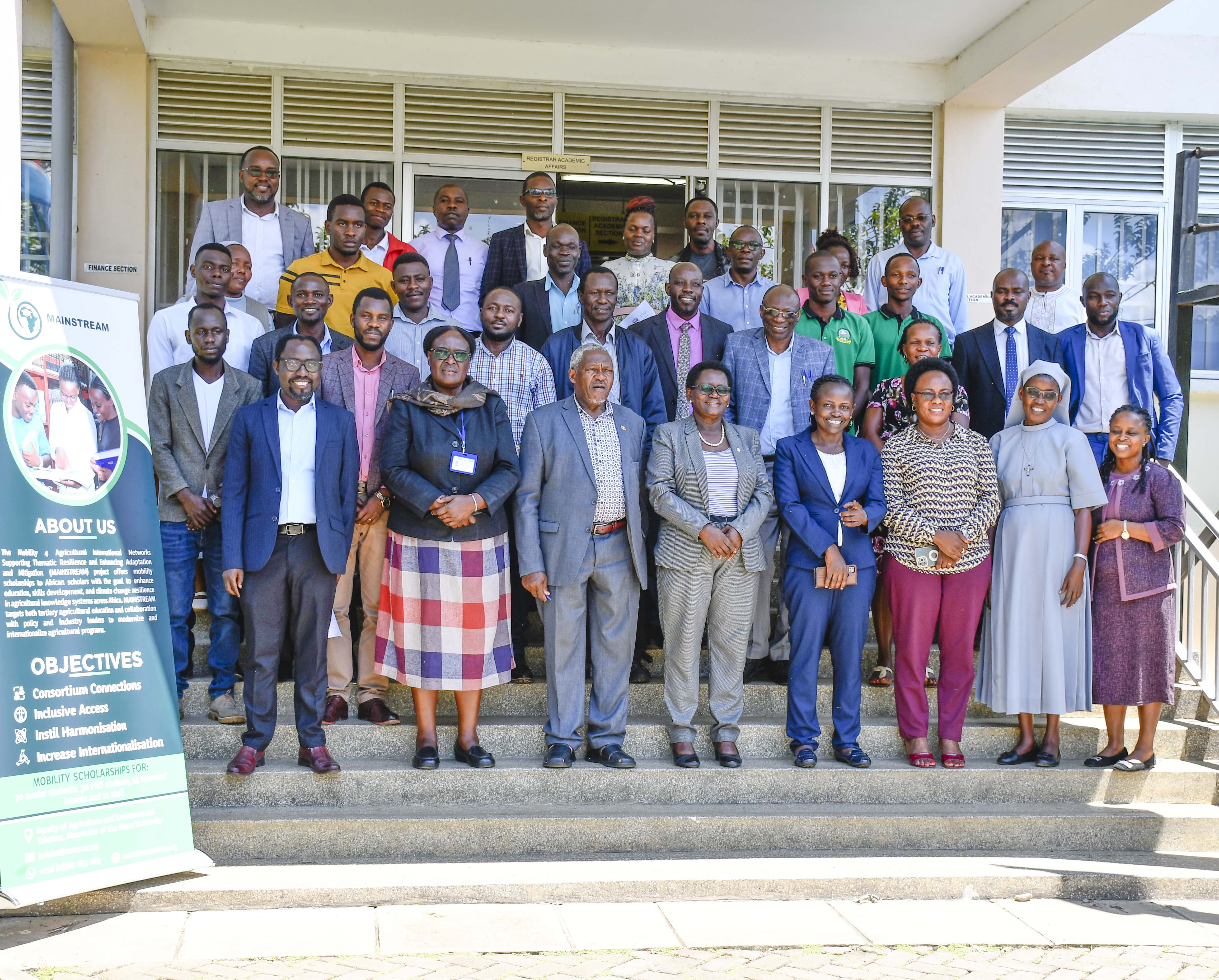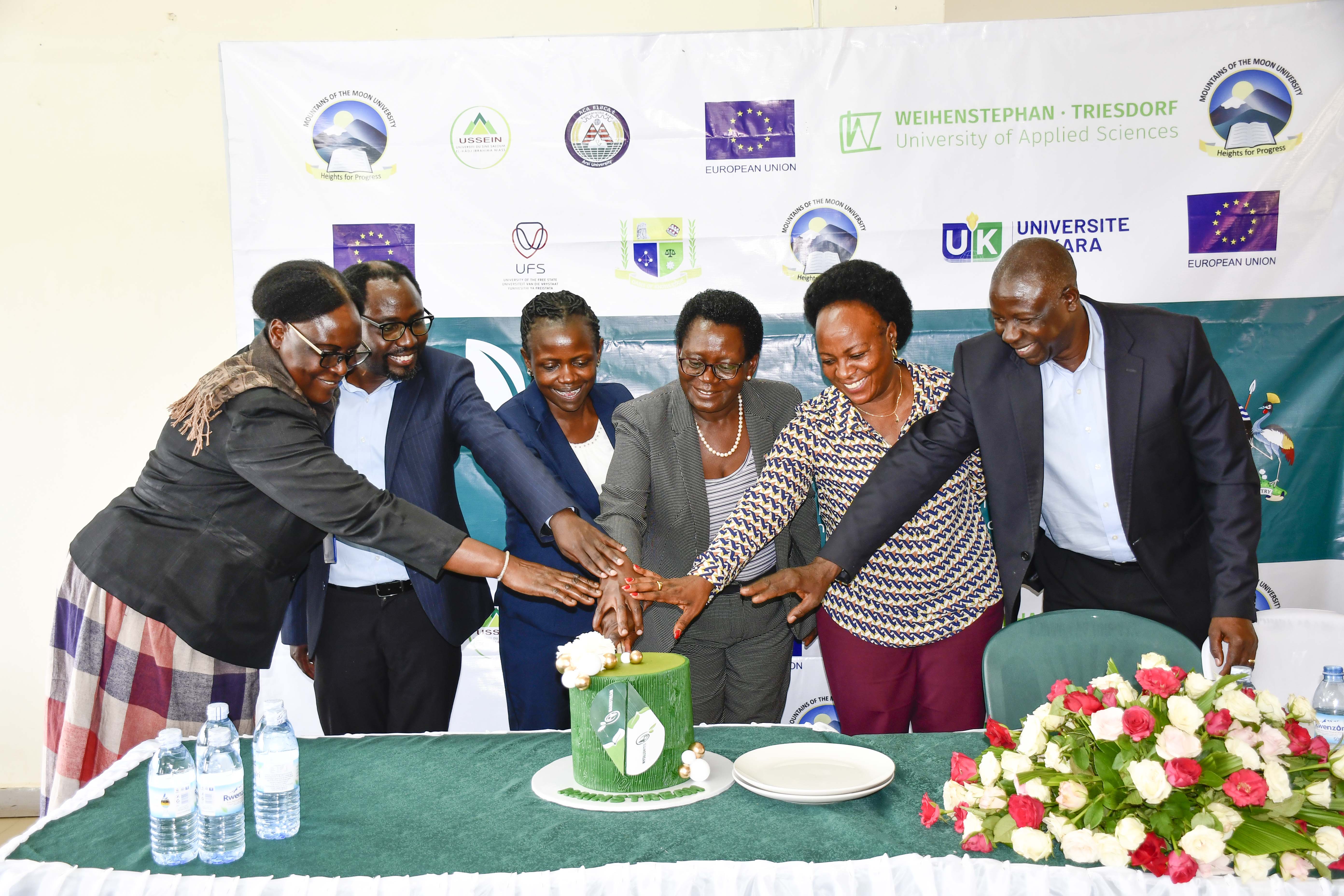Dr. Roseline Nyamutale, Chairperson of the Appointments Board at Mountains of the Moon University while launching the SMAINSTREAM Project on Thursday 17th October 2024 at Saaka, Fort Portal City emphasized the need for technological solutions to ensure farmers in remote areas access essential agricultural Knowledge.
“We urgently need innovations that address climate change challenges that have heavily impacted the agriculture sector. The University particularly the Faculty of Agriculture and Environment Sciences, the Faculty of Science, Technology and Innovations, and the Directorate of ICT need to develop applications that help digitalize the agriculture sector,” said Dr. Roseline Nyamutale.
“The University needs to develop applications that will provide crucial information to farmers in communities, especially given the shortage of extension staff.” Dr. Nyamutale explained, that currently, one extension worker is responsible for approximately 18,000 farmers leaving many without technical support.
She noted that many farmers now have smartphones and even those with no smartphones can be reached through designated focal persons.

Assoc. Prof. Violet Kisakye explained that students will reach and develop innovative solutions to challenges like climate change, benefiting farmers in Rwenzori and Tooro sub-regions. “The students will interact with farmers, conduct research and create academic modules relevant to their modules, she said.
Prof. John M. Kasenene poured praise to Prof. Violet Kisakye for working tirelessly and ensuring that the project sees light of day.
The MAINSTREAM Project, funded with over 1.7million euros, will offer mobility scholarships to African scholars, enhance education, skills development, and climate change resilience in agricultural knowledge systems across African and beyond.
The Project aims to enable selected students and staff to travel six different African countries and Europe including: South Africa, Senegal, Togo, Ethiopia, Kenya, Uganda and Germany.
The MAINSTREAM Project is expected to run for between 3 to four years provide unique opportunity for students, staff and community to make a noticeable difference in the agriculture sector. It as well targets both tertiary agricultural education and collaboration with policy and industry leaders to modernize and internationalize agricultural programmes.
The Project provides pathways for institutional modernization and internalization reforms, leveraging the consortia existing partnerships on agriculture education and skills with public and private organizations involvement across the continent to drive innovative solutions and value addition in interdisciplinary agricultural programmes at master and doctoral level and further inspire their inclusive implementation.

